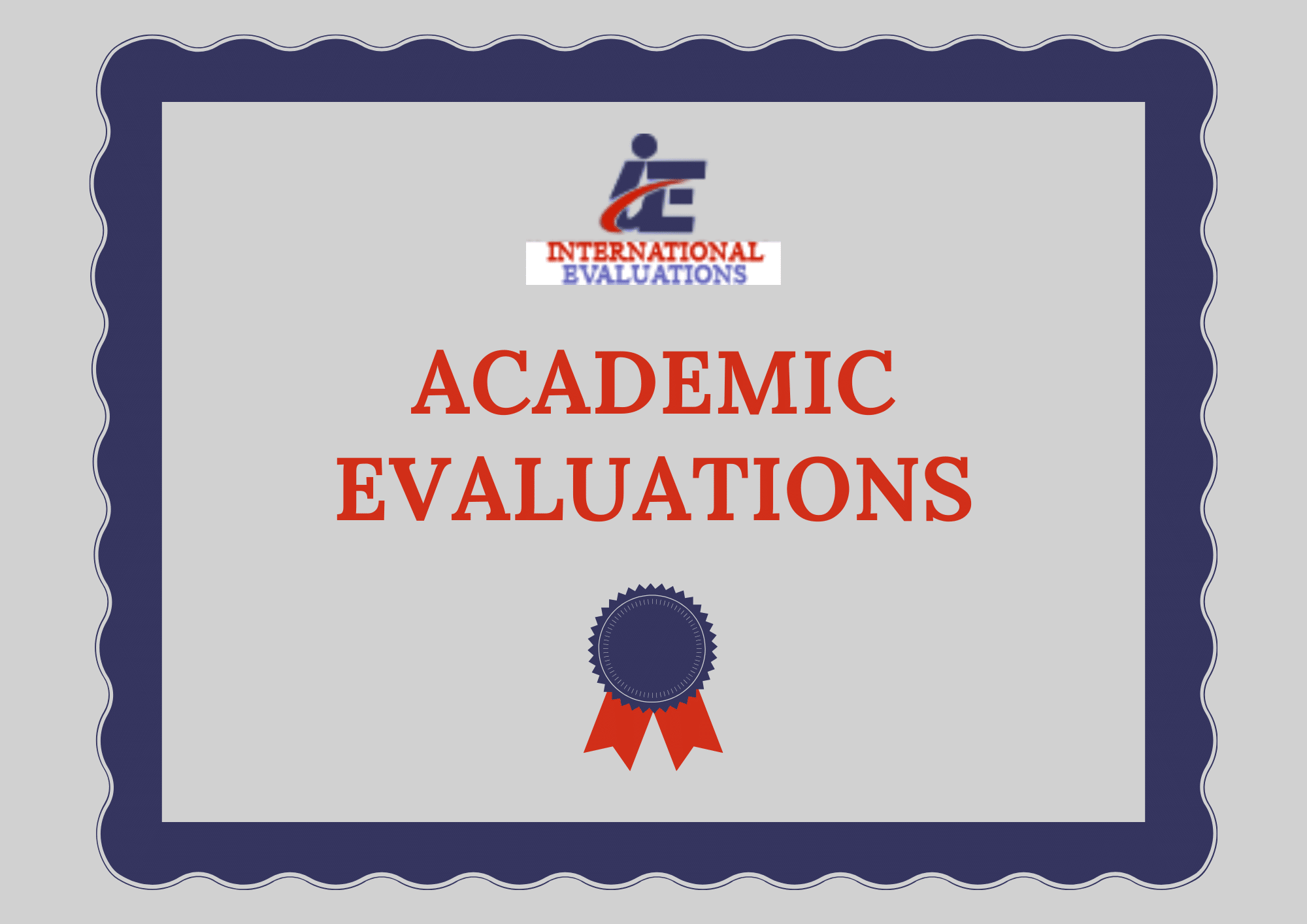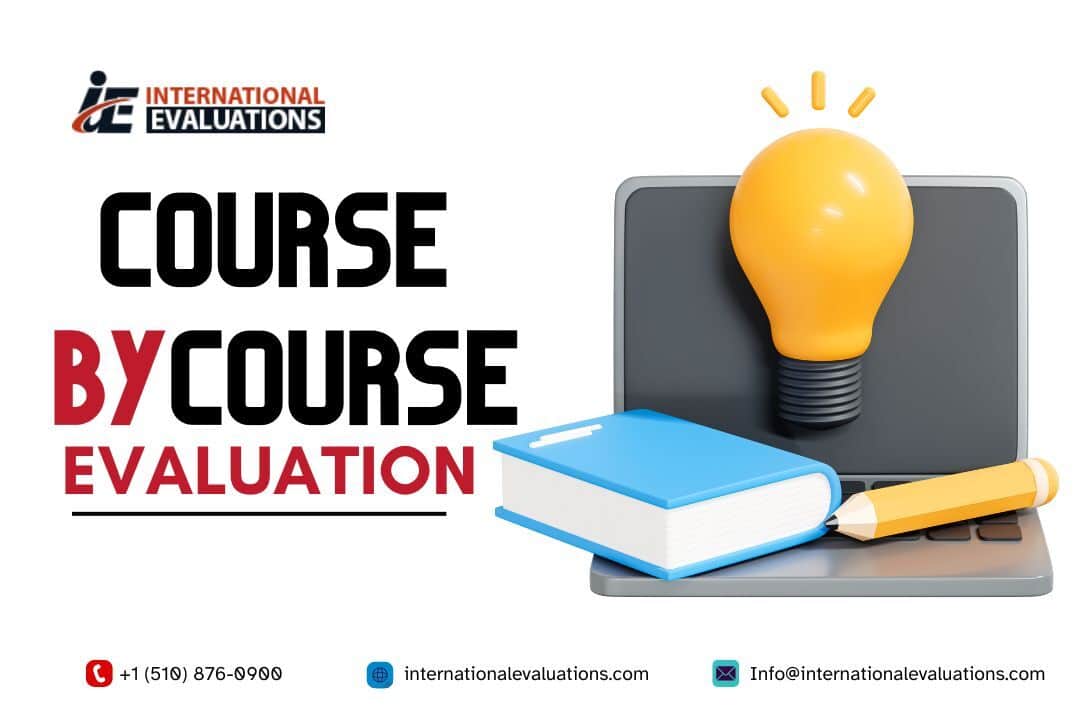Introduction
In our progressively globalized world, the significance of comprehending foreign education systems has actually never ever been more vital. Whether you're a worldwide student seeking admission to a university abroad, an employer aiming to hire skill from diverse backgrounds, or an university examining applicants' qualifications, familiarity with how different education systems operate can considerably impact your decisions. This post dives deep into "The Course-by-Course Approach to Understanding Foreign Education Systems," offering insights and guidance on navigating this complex terrain.
The Course-by-Course Method to Comprehending Foreign Education Systems
Understanding foreign education systems needs a nuanced approach. Standard approaches often fall short, as they might not represent the distinctions in curriculum, grading systems, and academic credentials throughout countries. The course-by-course credential examination technique addresses these disparities by analyzing individual courses taken by students, instead of just taking a look at total degrees or diplomas.
What is Course-by-Course Credential Evaluation?
Course-by-course credential evaluation is a specific kind of academic credential examination that breaks down a trainee's scholastic history into individual courses. This technique offers comprehensive insights into:
- Course material: What topics were studied? Credit hours: How many credits were granted for each course? Grades got: What was the efficiency level in each subject?
This level of information assists institutions assess the equivalency of foreign education compared to local requirements effectively.
Why is it Important?
Understanding the specifics of a student's academic background allows institutions and companies to make educated choices. For instance, if a student graduated from a foreign university with a specialization in engineering however did not take certain core courses recognized in another country, this might affect their eligibility for specific programs or task roles.
How Does Academic Credential Evaluation Work?
1. The Process Explained
Academic credential examination typically involves several actions:

- Document Submission: Trainees send their transcripts and other relevant documents. Verification: The examining company verifies the authenticity of these documents with issuing institutions. Evaluation Report Development: Detailed reports are produced describing course equivalencies and grades.
2. Types of Evaluations Available
There are different kinds of evaluations readily available depending upon what you need:
- General evaluation: Provides an overview of degree equivalency. Course-by-course evaluation: Offers detailed info about private courses. Work experience examination: Analyzes professional experience related to academic qualifications.
Each type serves various functions and is essential depending on your situation.
International Credential Examination Solutions: An Extensive Guide
When thinking about studying or working abroad, understanding which worldwide credential examination services to use is crucial. Here's a breakdown:
1. Recognized Agencies for Examination Services
Several accredited agencies concentrate on worldwide credential examinations:

|Agency Call|Country|Expertise|| ----------------------------|-----------------------|------------------------------|| World Education Services (WES)|USA|Academic credentials|| Educational Credential Evaluators (ECE)|U.S.A.|Course evaluations|| International Education Evaluators (IEE)|USA|Comprehensive assessments|
These firms have developed trustworthiness and are acknowledged by universities and employers alike.
2. Aspects Affecting Option of Agency
When choosing a company for global credential evaluation services, consider factors such as:
- Reputation and recognition Turnaround time for evaluations Cost of service Type of reports provided
The Function of Course-by-Course Credential Assessment in Admission Processes
1. Universities' Perspective on Evaluations
Universities often depend on course-by-course examinations during admissions since they provide clearness concerning the applicant's readiness for https://erickfqfm499.image-perth.org/course-by-course-evaluations-an-in-depth-technique-to-academic-credentials their programs.
Why Is This Crucial?
Different countries have varying mentor approaches and course structures; hence:
- It guarantees that applicants fulfill prerequisites. It assists keep academic standards within programs.
2. Employers' Perspective on Evaluations
For companies, understanding an applicant's educational background through detailed assessments can be essential in recruitment processes.
Key Points for Employers
Employers can identify if candidates have required abilities through assessments such as:
- Identifying core competencies developed throughout coursework. Validating claims made by candidates regarding their instructional achievements.
Work Experience Evaluation: Bridging Gaps in Academic Credentials
In addition to official education, work experience plays a significant function in evaluating somebody's credentials-- particularly when people have non-traditional instructional backgrounds or when they have actually gained know-how through practical means instead of official schooling.
1. What Makes Up Work Experience Evaluation?
Work experience assessments involve evaluating professional experiences against scholastic requirements. Aspects examined include:
- Job titles held Responsibilities undertaken Skills acquired
2. Importance in Various Sectors
Various sectors worth work experience in a different way; for instance:
- In technical fields like IT or engineering, relevant work experience may surpass formal qualifications. In academia or specialized professions like medicine, official credentials may hold more weight than work history alone.
Expert Viewpoint Letters: Enhancing Your Credential Assessment Process
A professional opinion letter acts as an extra tool that supports traditional credential examinations by providing context about unique educational experiences or curricula that may not fit neatly into basic frameworks.
1. Purpose of Expert Viewpoint Letters
These letters provide insights from experts who comprehend both the foreign education system and local standards better than automated assessment procedures can convey.
Benefits Include:
- Verification of uncommon credentials Clarification on curriculum specifics Support in making a case for admission or hiring
2. How to Acquire an Expert Opinion Letter?
To get a professional viewpoint letter:
Identify professionals familiar with both educational systems. Request detailed assessments based on individual scholastic records. Ensure these viewpoints are recorded formally for submission with applications.Business Strategy Examinations: Understanding Entrepreneurial Certifications Throughout Borders
In today's competitive landscape, organizations frequently look for skill from varied backgrounds who possess unique entrepreneurial abilities formed by diverse educational experiences around the globe.
1. What is Company Plan Evaluation?
A business strategy evaluation examines the practicality and prospective success of proposed organization concepts while thinking about fundamental understanding gotten from official education and practical experiences abroad.
Components Include:
- Market research study analysis Financial forecasts Marketing strategies
2. Value in International Markets
Business plan evaluations matter due to the fact that investors frequently desire guarantee that entrepreneurs comprehend local markets sufficiently while also being able to leverage their international education effectively.
Conclusion
Navigating foreign education systems can seem daunting at first glance; however, employing strategies such as course-by-course credential evaluation offers clarity and precision that benefits both students and institutions alike. By integrating various tools like work experience evaluations and expert opinion letters into this procedure, stakeholders can guarantee they make educated choices regarding admissions or working with practices based on thorough assessments instead of surface-level information alone.
In summary, "The Course-by-Course Approach to Understanding Foreign Education Systems" not only improves openness however also fosters inclusivity in academia and employment sectors worldwide-- enabling varied talents to contribute meaningfully throughout borders without being prevented by misconceptions surrounding their qualifications.
Frequently Asked Questions (Frequently asked questions)
Q1: What is course-by-course credential evaluation? A: It's a method that evaluates specific courses taken by trainees instead of just total degrees to provide comprehensive insights into their academic history.
Q2: Why need to I get my qualifications evaluated? A: Credential assessments help universities examine your credentials precisely while enabling employers to verify your skills versus market standards.
Q3: Which firms offer international credential evaluation services? A: Agencies like World Education Solutions (WES) and Educational Credential Evaluators (ECE) are extensively acknowledged choices to name a few concentrating on international qualifications.
Q4: Can work experience be assessed alongside my scholastic credentials? A: Definitely! Work experience assessments evaluate expert experiences relevant to your field together with official instructional achievements improving your overall profile significantly.

Q5: How do skilled viewpoint letters add to my application? A: They provide personalized context from well-informed professionals confirming unique elements about your certifications which may not be captured through basic assessments alone.
Q6: Is organization plan examination important for entrepreneurs with foreign degrees? A: Yes! It confirms entrepreneurial ideas against established organization concepts ensuring thorough analyses that draw in financial investments while showcasing ingenious thinking influenced by diverse instructional backgrounds.
This article aims not just at debunking intricate processes involved however also highlights important resources required along this journey towards understanding foreign education systems effectively!